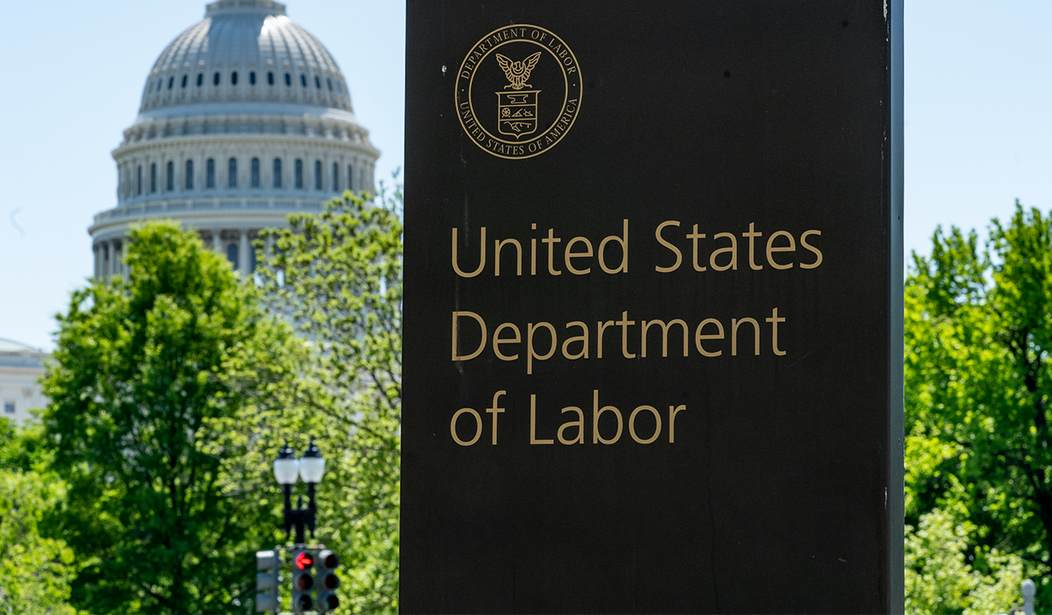Scam artists, organized criminal gangs, and nations like North Korea all stole at least $191 billion in pandemic-era unemployment relief program funds, and they’re largely going to get away with it.
It’s all about the statute of limitations and the fact that investigators and law enforcement are going through nearly two million suspected cases of unemployment fraud. There’s no way the DOJ will be able to examine all these cases by the time the statute of limitations runs out in 2025.
Michael Horowitz, chair of the federal Pandemic Response Accountability Committee, told the House Ways and Means Committee this month that it was imperative that Congress make an exception to the law in this case.
“We’re already three years since the beginning of the benefits going out. We’ve got a lot of work still to do, right? So, if it runs out in 2025, for some cases, that’s going to be a problem,” Horowitz said. “We’re going to need the 10 years.”
The Democrats knew for more than a year the enormity of the problem when reports from every state detailed the thefts. And yet, they didn’t extend the statute of limitations on unemployment fraud and never paid much attention at all to the record amount of cash that disappeared.
McGregor Scott, who was appointed California’s fraud special counsel by Gov. Gavin Newsom in 2021, said, “This is the largest fraud scheme ever perpetrated on the taxpayers in the history of the United States. And so in the context of that, why not give law enforcement and prosecutors that extra time.”
Congress has extended the statute of limitations to prosecute fraud in other pandemic-related economic programs. In August, President Biden signed two bills into law that gave the Department of Justice and other federal agencies 10 years rather than five to investigate and prosecute fraud cases involving the Paycheck Protection Program, or PPP, and the COVID-19 Economic Injury Disaster Loan, or EIDL.
When government officials asked Americans to stay home in March 2020, the economy ground to a near-halt. Millions were suddenly without income. Congress approved trillions of dollars in aid with few guardrails, pumping an unprecedented amount of money into unprepared social safety-net agencies. State agencies, including the California Employment Development Department, that were swamped with an overwhelming demand for help sent out benefits for months without scrutinizing whether applicants were who they claimed to be, or if they had lost income because of COVID-19.
Almost $900 billion in various unemployment benefits were paid out, and the Department of Labor estimates that about 21% of that was stolen or handed out to undeserving recipients.
Also for our VIPs: The Legacy of Pandemic Emergency Relief Programs: Biggest Scam in U.S. History
But the problem is much, much bigger.
Haywood Talcove, chief executive of the Government group at LexisNexis Risk Solutions, estimated that along with crime rings operating in at least four countries and at least 800 crime organizations working across state lines within the United States, up to 4 million people defrauded taxpayers.
Then-California State Auditor Elaine Howle released a report in January 2021 saying that the EDD might have overpaid more than a million people since March 2020 after it stopped enforcing eligibility rules so it could process claims faster.
Former California Labor Secretary Julie A. Su, who oversaw EDD during the pandemic, is currently in the No. 2 post at the U.S. Department of Labor and is in the running to be the next Labor secretary.
It’s too bad that tar-and-feathering has gone out of style. Our probable next Secretary of Labor allowed up to $30 billion to walk out the door. Her non-existent eligibility rules for claims were so easy to scam that California inmates stole up to $1 billion.
Maybe if we just rode her out of town on a rail?
Repeat after me: THIS DIDN”T HAVE TO HAPPEN. Simple, elemental rules could have been implemented to prevent Social Security numbers from being used multiple times, for example. The fact is, the agencies and the federal government didn’t want to know who was stealing from the taxpayer. Perhaps if they ignored it, the problem would go away.
Instead, they found something better. Taxpayers couldn’t give a flying squirrel if $200 billion of their money went to criminals and rogue nations. Apathy wins in the end.










